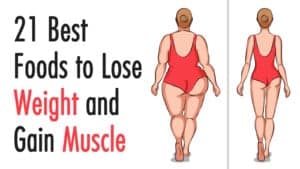Muscles aren’t just aesthetically pleasing or useful for lifting heavy things. They may actually save a man’s life. While men are more likely to develop heart disease and potentially die from a heart attack, researchers reveal how men with more muscle have a lower risk of heart problems. Admiring a man for having a more muscular physique may now also be related to your understanding that they may live longer and healthier. Who knows. Maybe male admirers instinctually knew this all along, and science is just catching up?
Men’s statistics related to heart problems
According to the Center for Disease Control and Prevention, about 1 in 4 men died from heart disease in 2017 and it’s considered the leading cause of death of men in the United States. Heart disease does not discriminate. The percentage differences are within 1-3% of each race from the total populace of differing nationalities. That said, each nationality has an individual stronger factor related to the cause of heart disease.
Hispanics tend to have higher rates of obesity and diabetes, which leads to heart problems. African Americans tend to have higher blood pressure. In the case of Asian Americans or Pacific Islanders, cancer is the leading cause of death among men, with heart disease following second. Genetics or family history of heart disease affects all nationalities.
More alarming than those statistics is that 50% of the men who died suddenly of heart disease had no previous symptoms.
Causes of heart disease
Most people are familiar with the causes of heart disease. You can prevent some of these causes by smart lifestyle choices. However, you’ll find others out of your hands. You stand a higher likelihood of developing heart problems as you gain more related factors.
Uncontrollable factors related to heart problems
- Age: Past the age of 40, men and women both increase their chances of developing heart disease. Women develop it more so after menopause, or in their 50s. Estrogen has proven to be beneficial to the heart in the previous years.
- Gender: For reasons researchers are still investigating, being born a male increases your risk of heart disease.
- Genetics: Should you be born into a family with a significant history of heart disease, then it will play a factor.
Lifestyle factors related to heart problems
1 – High blood pressure:
Men can most often control high blood pressure through diet, exercise, and decreasing cholesterol levels.
2 – High cholesterol:
Most cholesterol imbalances are related to diet and smoking.
3 – Smoking:
Smoking creates a decline in various body functions, which places a strain on your heart.
4 – Not being physically active:
Leading a sedentary lifestyle lends itself to weakening your arteries, veins, and heart muscle.
5 – Overweight or Obese:
Carrying extra weight or being obese is usually caused by poor diet choices and lack of exercise. Both of these can cause high blood pressure and cholesterol, and weakening muscles. Additionally, it is a strain on your heart to carry excess weight and to attempt to pump blood into a body that is bigger than the heart was designed to accommodate.
6 – Diabetes:
Whether you are born with diabetes or develop it later in life, diabetes is a factor in heart disease. It is essential to keep the blood sugar as stable as possible to prevent heart disease from striking too early.
7 – Stress:
Managing your stress levels is very important. Not only does stress increase your blood pressure, but it creates a strain on your heart as your body is releasing hormones designed for fight or flight. Staying in a stressed state for long periods creates wear and tear on your heart, arteries, brain, and other organs.
8 – Alcohol:
Use of alcohol should be limited to 2 drinks for men per day.
9 – Diet:
Eating healthy foods not only can prevent some of the aforementioned factors, but also equips your body with the nutrients and energy it needs to maintain healthy function of your organs, including your heart.
Muscle Mass as a way to a man’s heart
The connection to muscle mass and men’s cardiovascular health is not entirely new. UCLA performed one study and published results in the American Journal of Cardiology in 2016. Scientists studied the data from 1999 to 2004 of over 6000 people who had a history of heart disease. The scientists broke up the participants into 4 different categories. Low fat/low muscle mass, high fat/low muscle mass, high muscle mass/high fat, and high muscle mass/low fat.
The outcome demonstrated that individuals with low fat/high muscle mass had the lowest risk of heart disease and subsequential death from heart problems.
JAMA Study
Another study was published in JAMA in February of 2019, linking a man’s ability to do multiple push-ups to cardiovascular health. This study looked at the records of 1100 firefighters of an average age of 39 from Indiana who were able to perform 40 push-ups or more in a row. The exercising group had a reduced their lower chance of developing heart disease over a 10-year span of time by 96%. That is, in comparison to the men who could only do 10 or fewer push-ups.
The main disadvantage of this study was that it used firemen who presumably are already in good health and live an active lifestyle. Therefore, the push-ups aren’t necessarily an indicator of overall heart health but could be a determinator of one’s overall fitness level.
The most recent study was performed in Greece and published in the Journal of Epidemiology and Community Health in October of 2019. This study was important because it focused on middle-aged men and women without a history of heart disease. They followed 1000 men and women for 10 years. Throughout that time, 272 participants received diagnoses of heart disease, including the incidence of strokes.
Those who had higher muscle mass were 81% less likely to develop heart disease, and those with the highest muscle mass also had fewer additional factors such as high blood pressure, cholesterol, or diabetes.
Upon additional evaluation, the researchers concluded that the muscle mass did not make a difference among women. It only affected men. Currently, there are only theories as to why. One reason is that women’s hormones tend to protect the heart until after menopause. Another theory is that men naturally have more muscle mass in general than women.
Summarizing the studies
All of these studies are based on observation but do seemingly point to the importance of men working to maintain their muscle mass as heart disease prevention.
 Methods for men to retain or gain muscle mass with age
Methods for men to retain or gain muscle mass with age
Men begin to lose muscle mass at a rate of 3-5% per decade during their 30s. During the man’s lifetime, he may lose about 30% of overall muscle mass. Medical professionals refer to this condition as sarcopenia.
some doctors believe that sarcopenia may correlate to a decline in the production of testosterone, which naturally occurs. Testosterone replacement therapy may help with lessening this. Another factor is protein. Protein aids in building muscle, and as we age, we need to consume more protein as our bodies can’t break it down as well. Men should consume 10-35% of their caloric intake as protein. Too much protein can damage the kidneys as you age, so don’t overdo it.
Less muscle mass also equates to bone fragility. Studies have shown that with a decline in muscle mass, there is an increase in the frequency of fractures in the leg, hips, arms, or wrist.
The type of activities recommended for maintaining or building muscle mass include:
- Strength training or weight lifting for the entire body, particularly your large muscle groups.
- Resistance bands
- Floor exercises such as push-ups, pull-ups and sit-ups or crunches
- Daily activities such as carrying groceries, taking out the garbage, playing a sport, or yard work. Activities that keep the body moving naturally while using muscles are ideal.
 Final Thoughts on the Connection Between Increased Muscle Mass and Fewer Heart Problems
Final Thoughts on the Connection Between Increased Muscle Mass and Fewer Heart Problems
Scientists and medical professionals have been working to find out why men are more likely to develop heart problems, and at an earlier age than women, for many years. While the reason still is not clear, research is pointing to how men with more muscle mass have a lower risk of heart problems. Decreasing your risk factors is always a good option, but it appears that for a man, physical fitness and muscle mass may play a larger role than initially thought.














